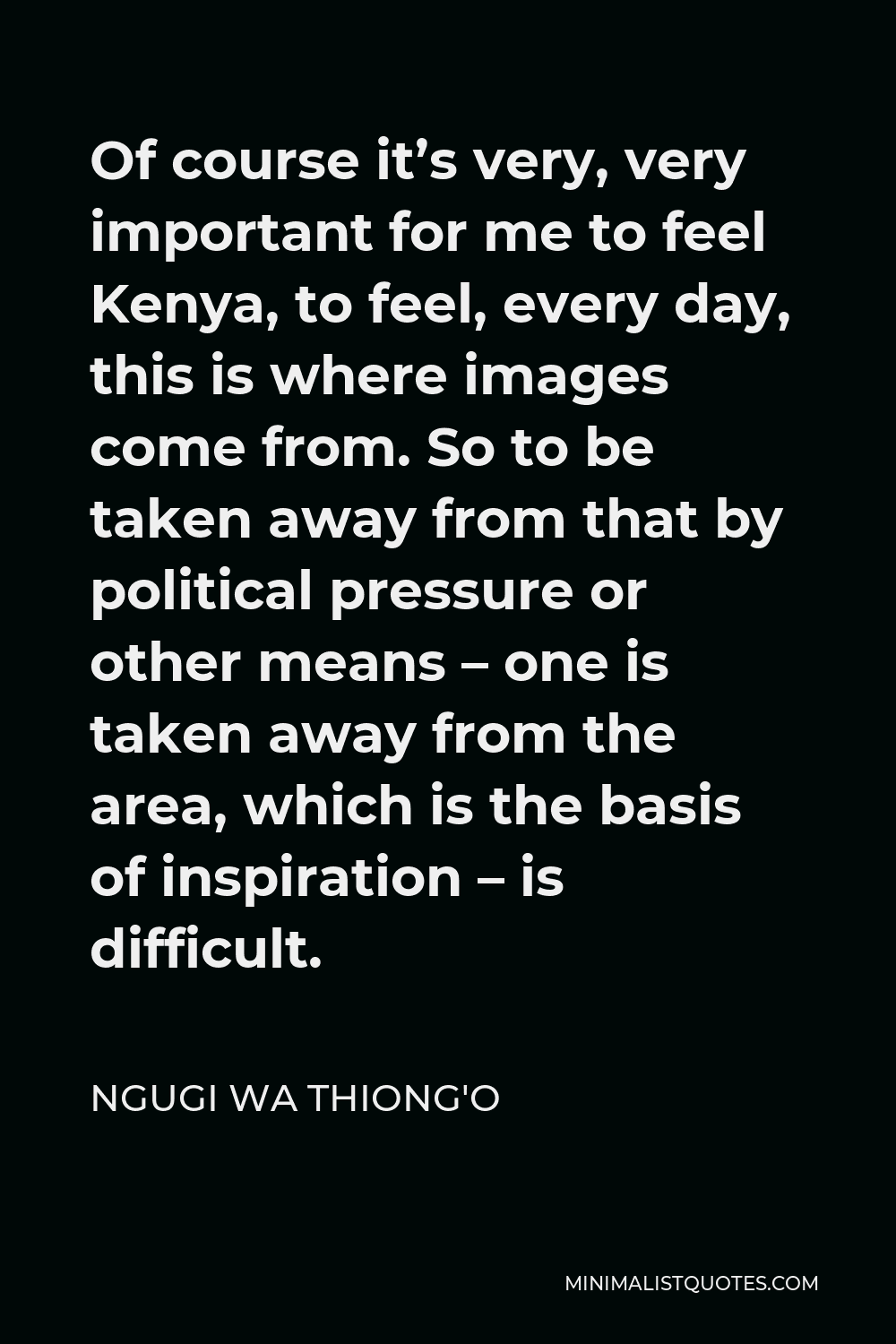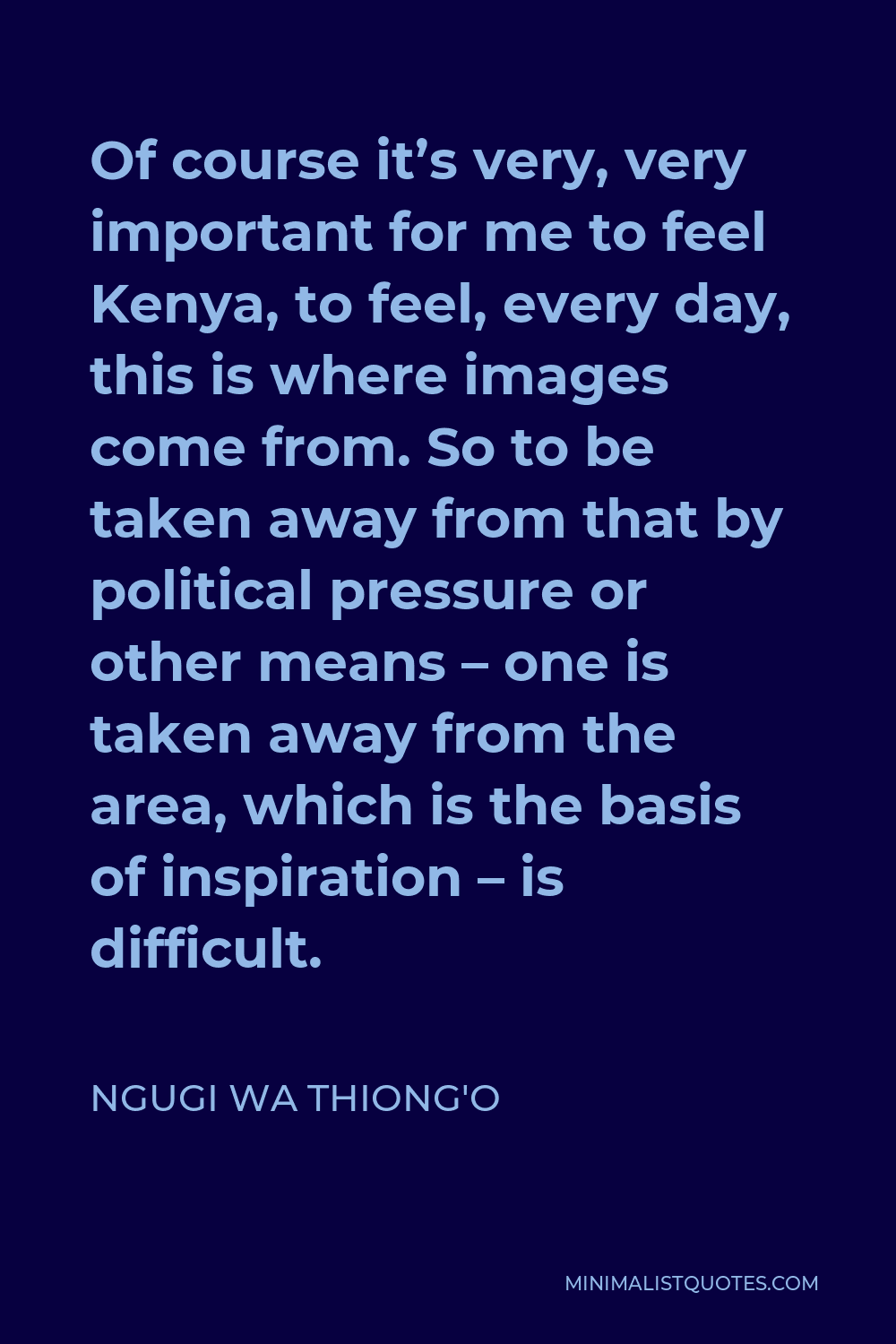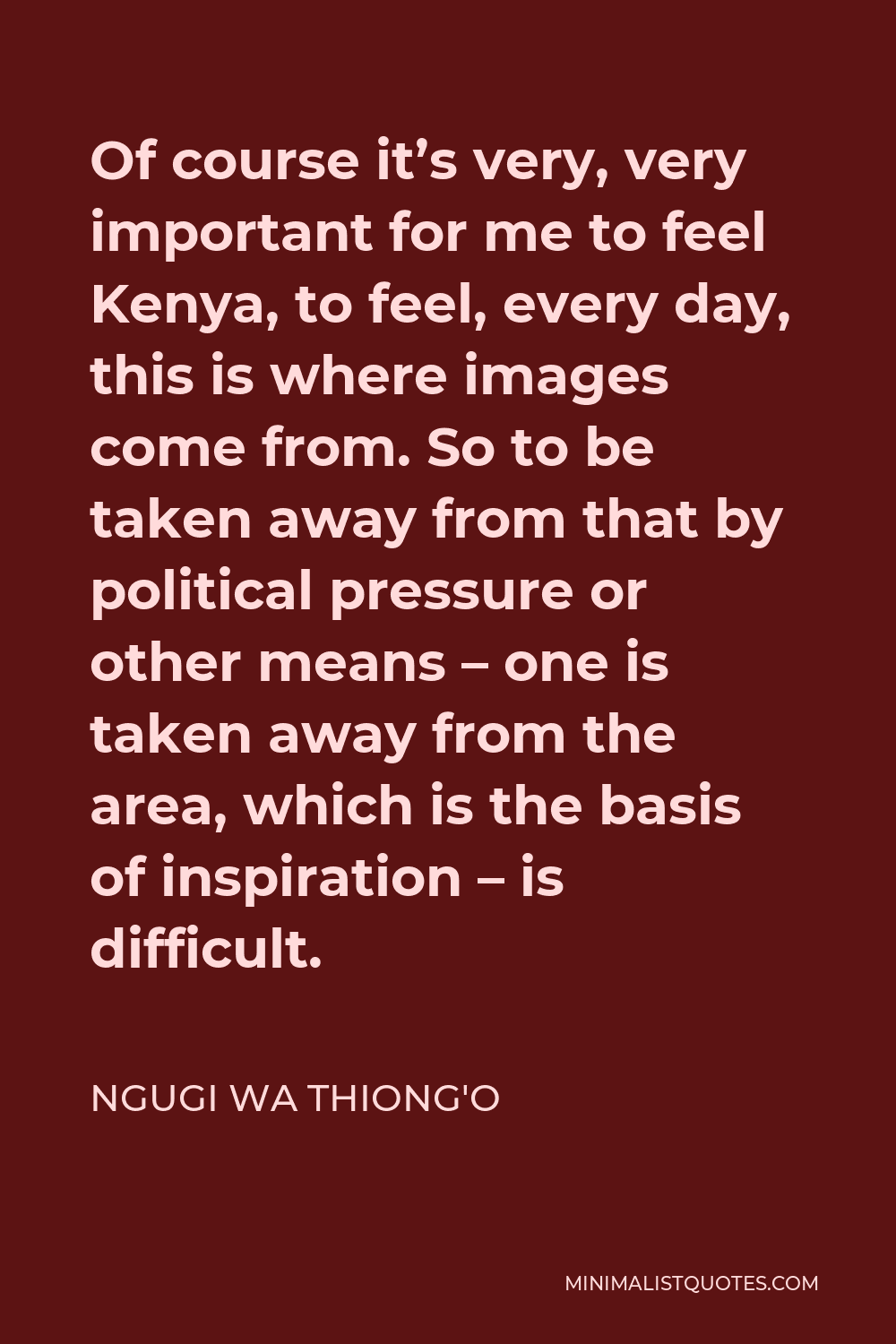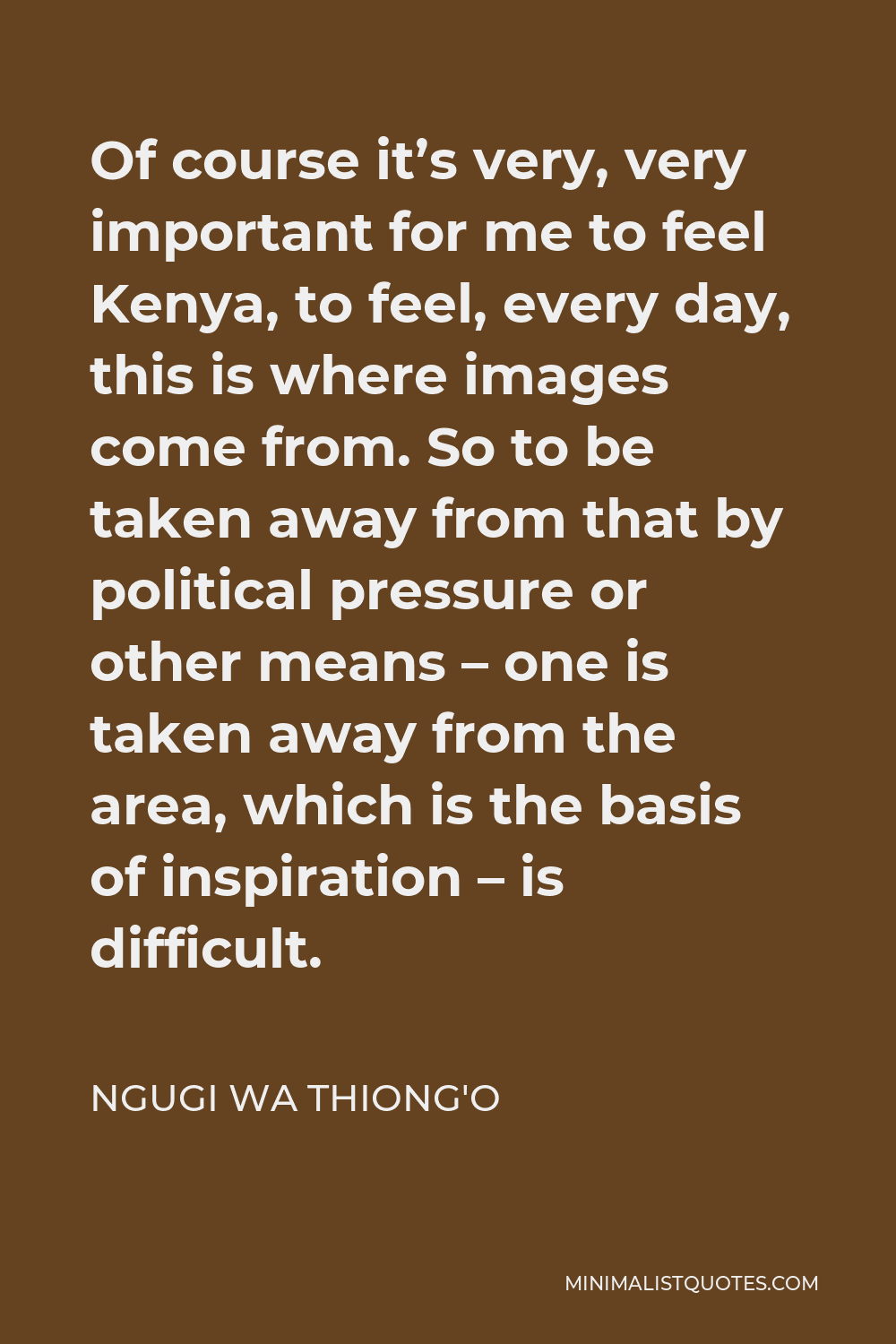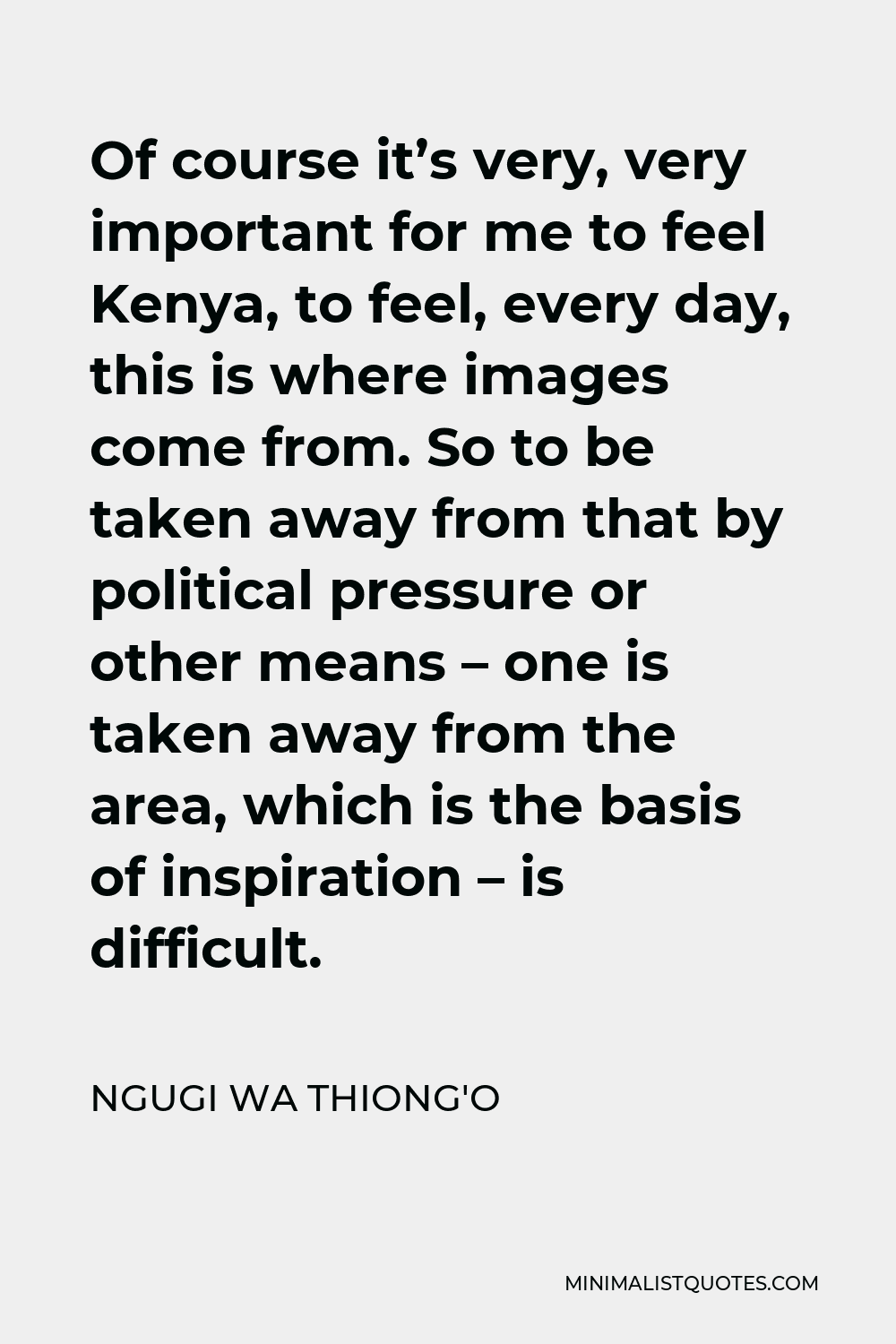The Bible in translation is being read to thousands and thousands in Africa. It is an integral part of their functioning and the way they look at the world.
NGUGI WA THIONG'OOf course it’s very, very important for me to feel Kenya, to feel, every day, this is where images come from. So to be taken away from that by political pressure or other means – one is taken away from the area, which is the basis of inspiration – is difficult.
More Ngugi wa Thiong'o Quotes
-





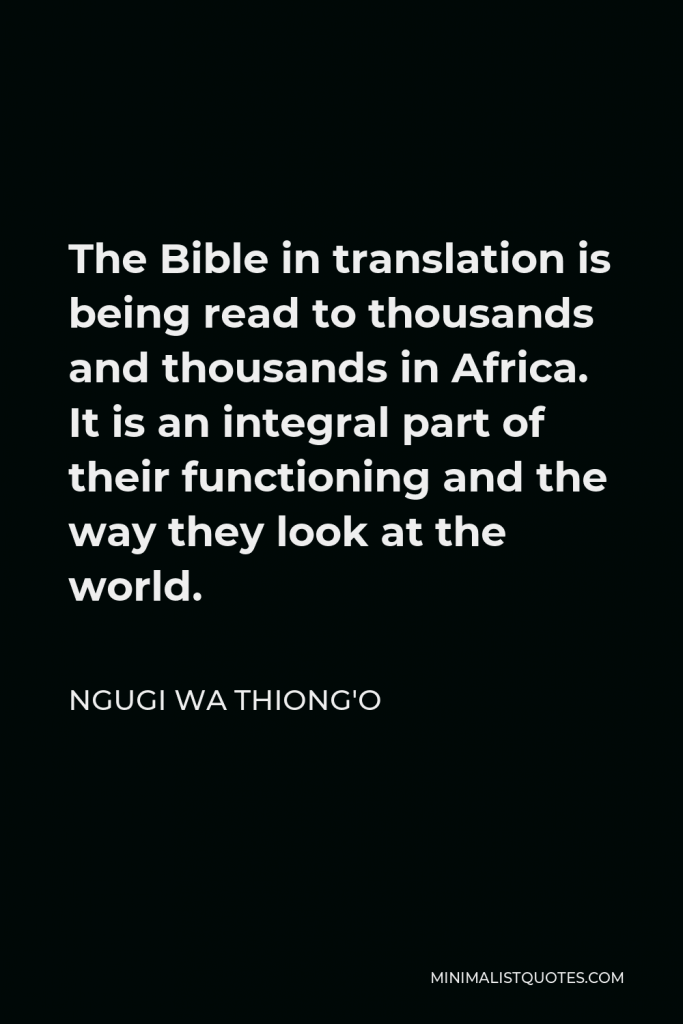

-





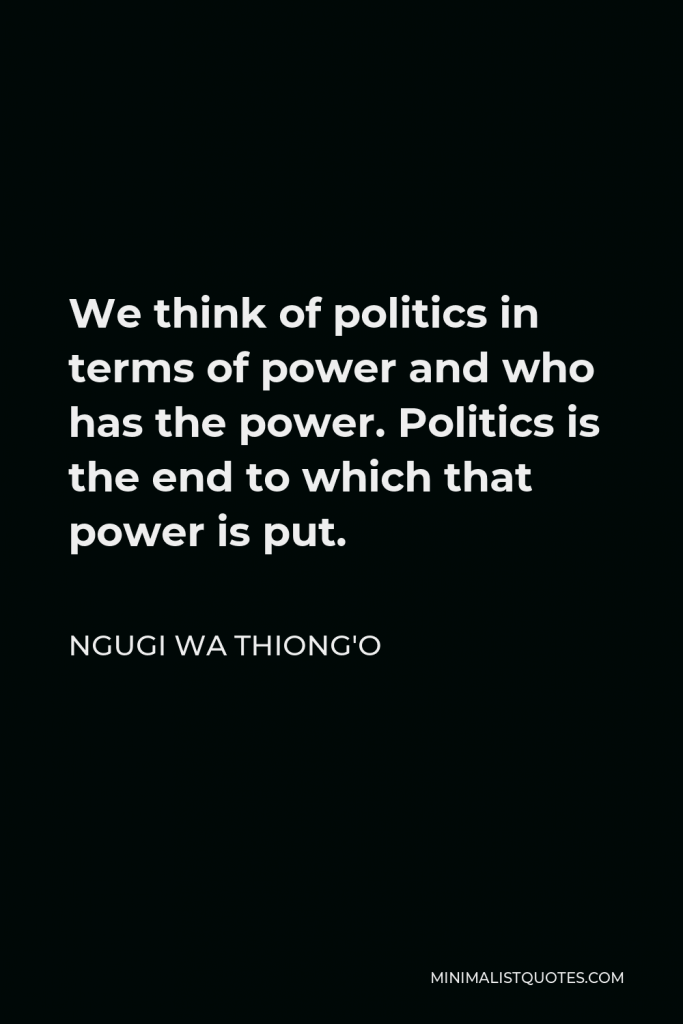

We think of politics in terms of power and who has the power. Politics is the end to which that power is put.
NGUGI WA THIONG'O -





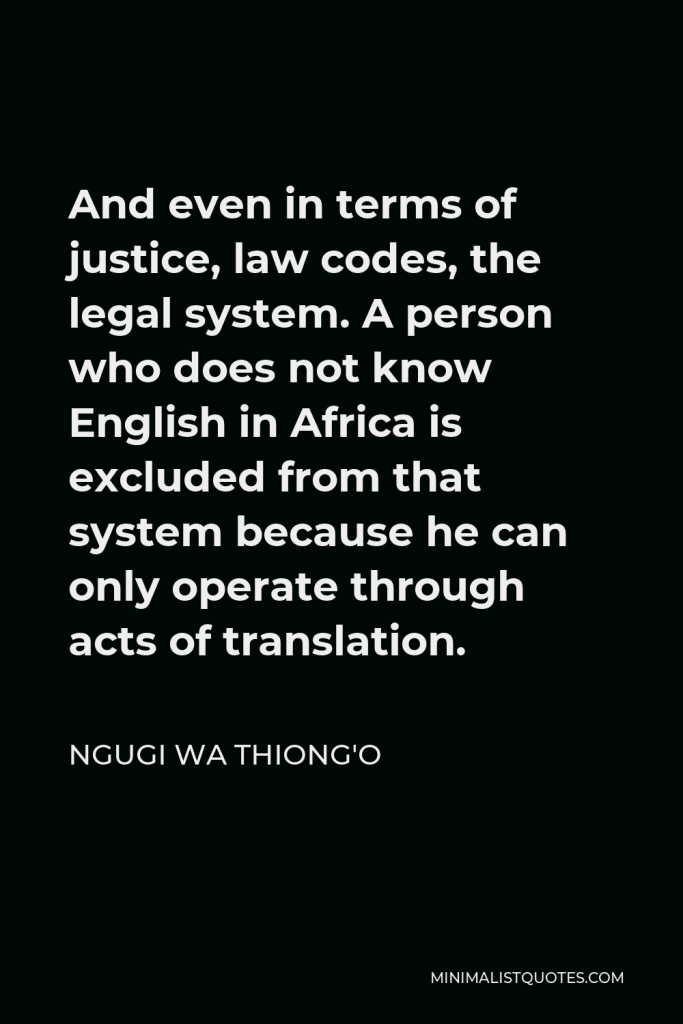

And even in terms of justice, law codes, the legal system. A person who does not know English in Africa is excluded from that system because he can only operate through acts of translation.
NGUGI WA THIONG'O -





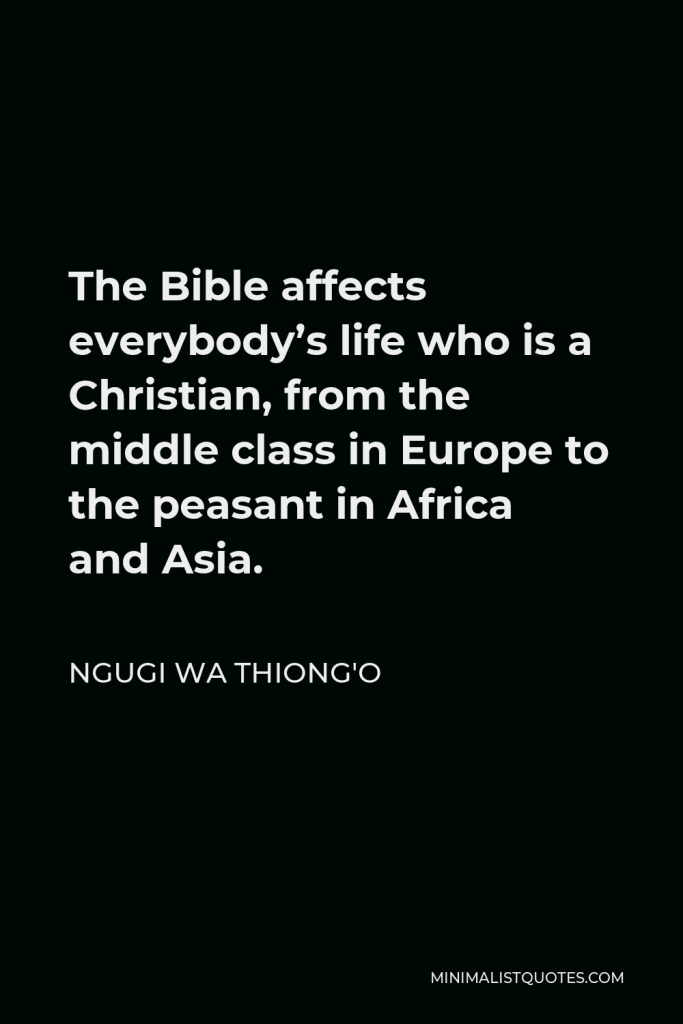

The Bible affects everybody’s life who is a Christian, from the middle class in Europe to the peasant in Africa and Asia.
NGUGI WA THIONG'O -





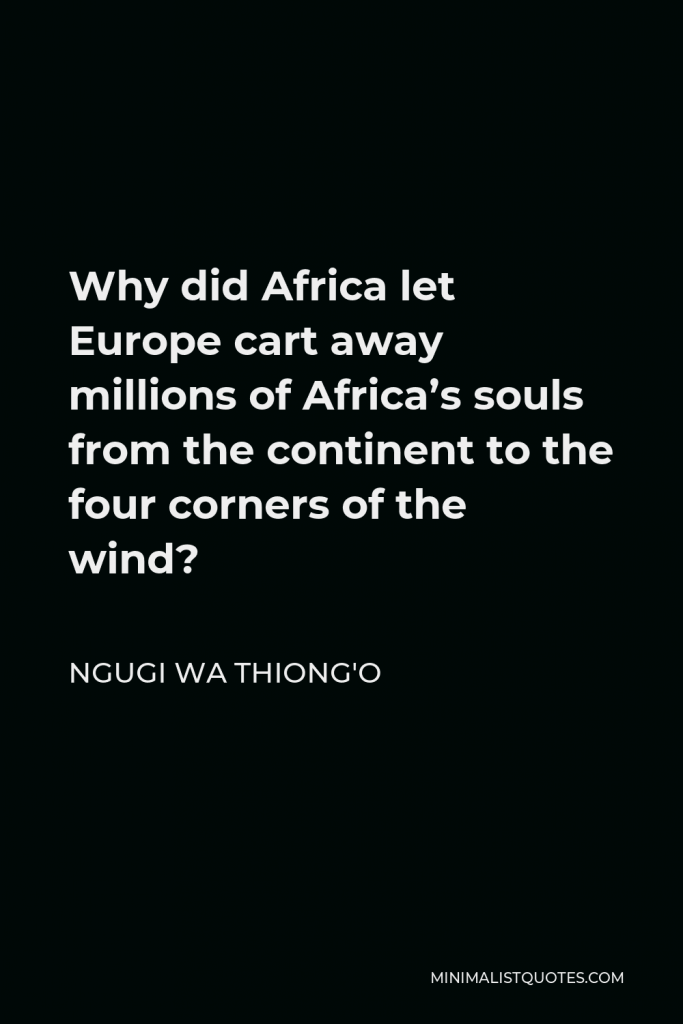

Why did Africa let Europe cart away millions of Africa’s souls from the continent to the four corners of the wind?
NGUGI WA THIONG'O -





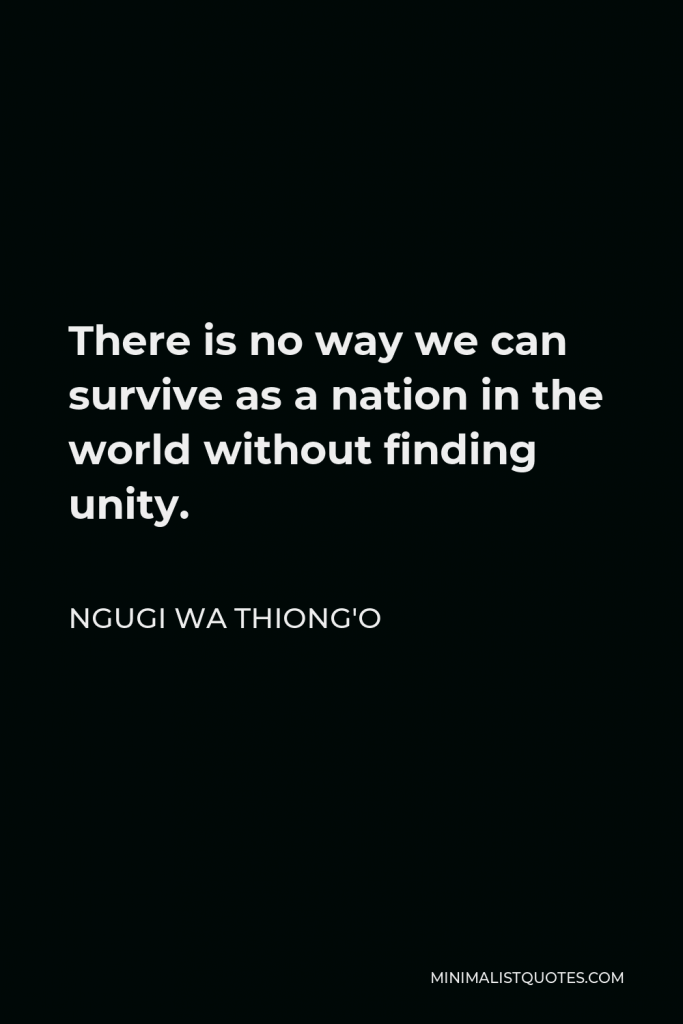

There is no way we can survive as a nation in the world without finding unity.
NGUGI WA THIONG'O -





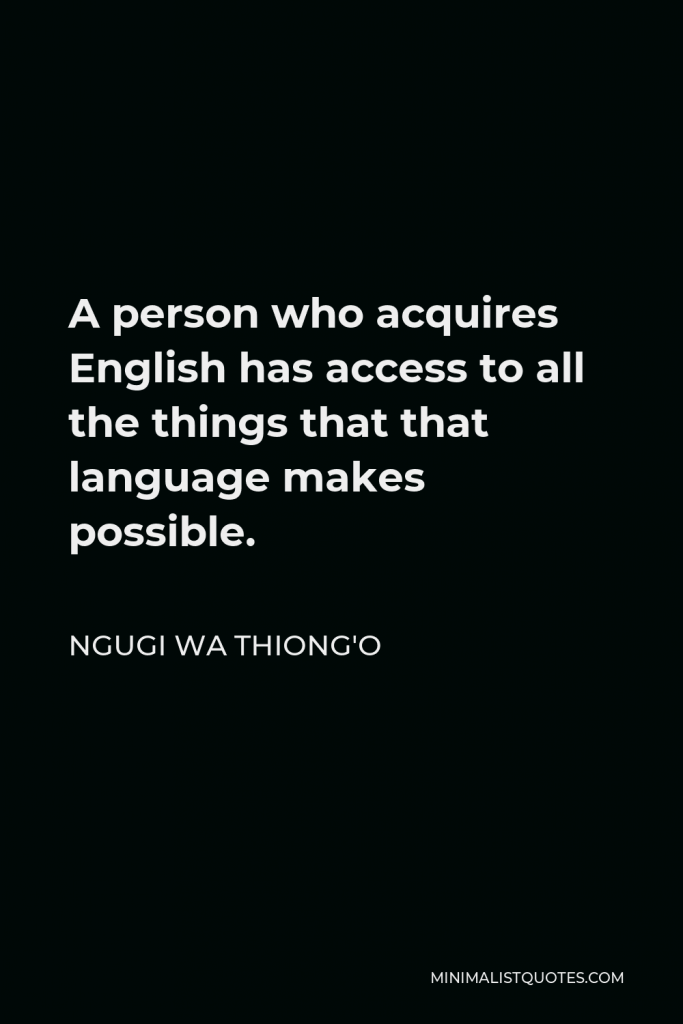

A person who acquires English has access to all the things that that language makes possible.
NGUGI WA THIONG'O -





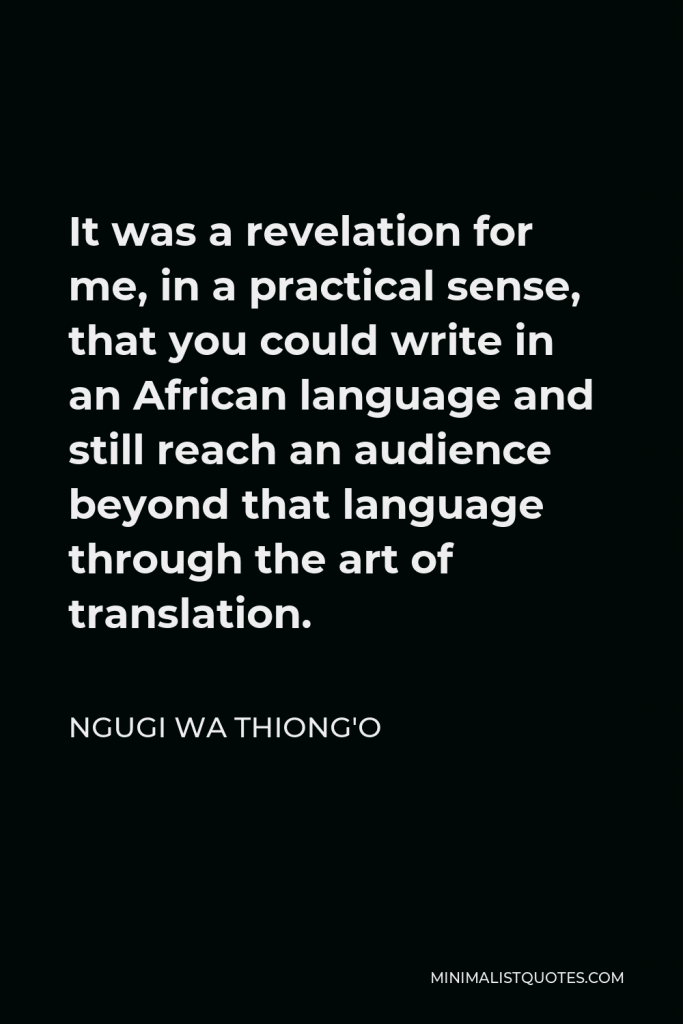

It was a revelation for me, in a practical sense, that you could write in an African language and still reach an audience beyond that language through the art of translation.
NGUGI WA THIONG'O -





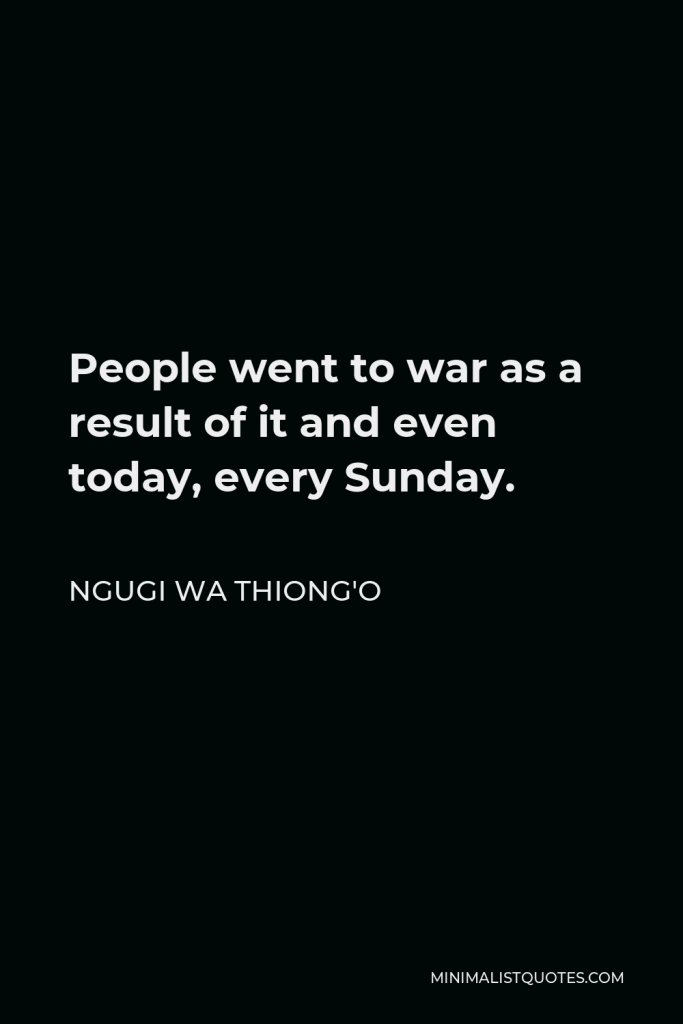

People went to war as a result of it and even today, every Sunday.
NGUGI WA THIONG'O -





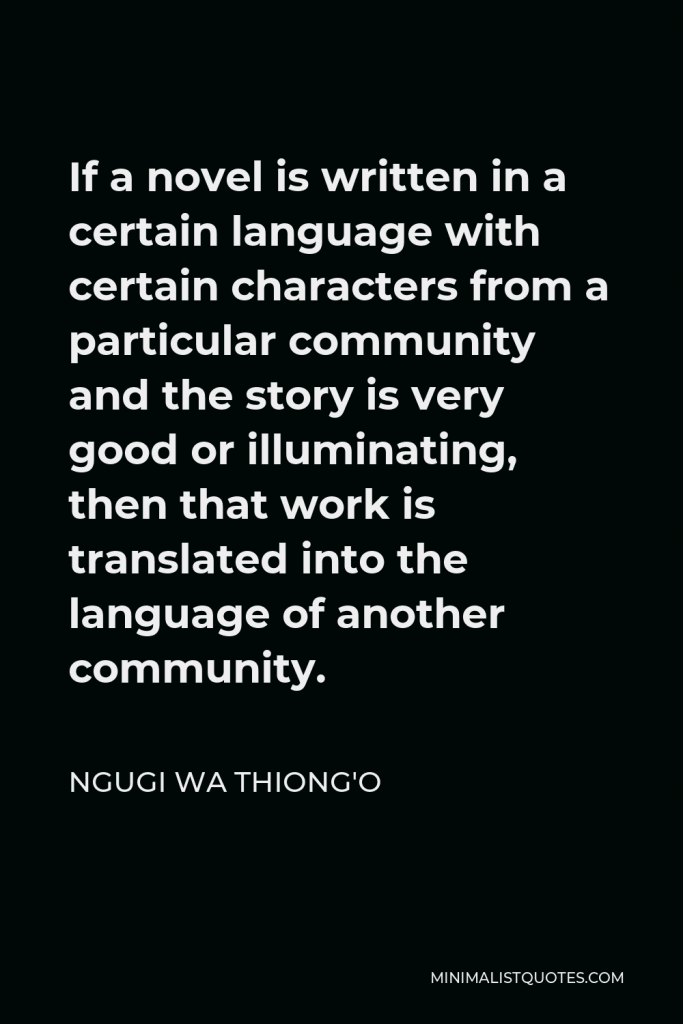

If a novel is written in a certain language with certain characters from a particular community and the story is very good or illuminating, then that work is translated into the language of another community.
NGUGI WA THIONG'O -





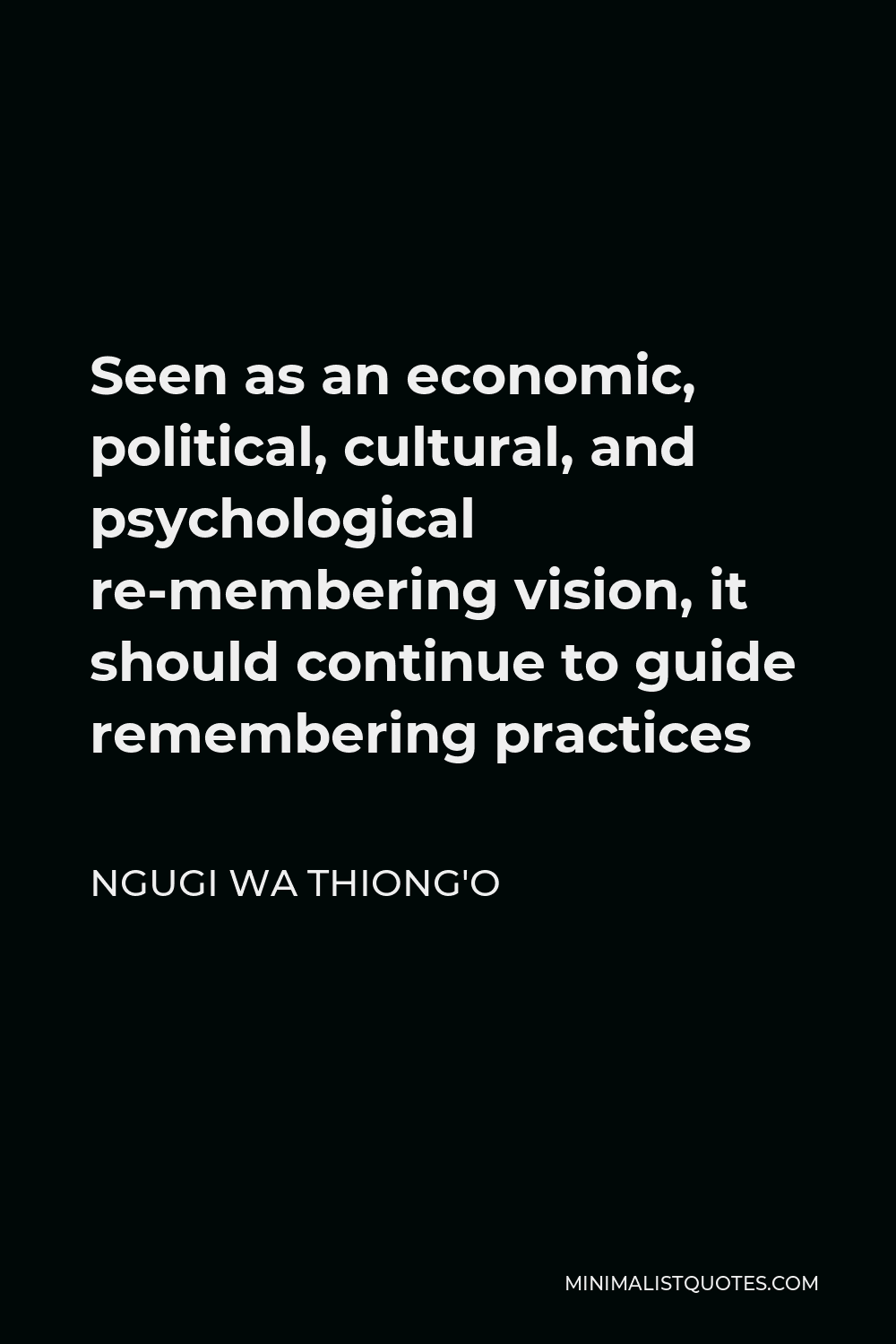
Seen as an economic, political, cultural, and psychological re-membering vision, it should continue to guide remembering practices
NGUGI WA THIONG'O -





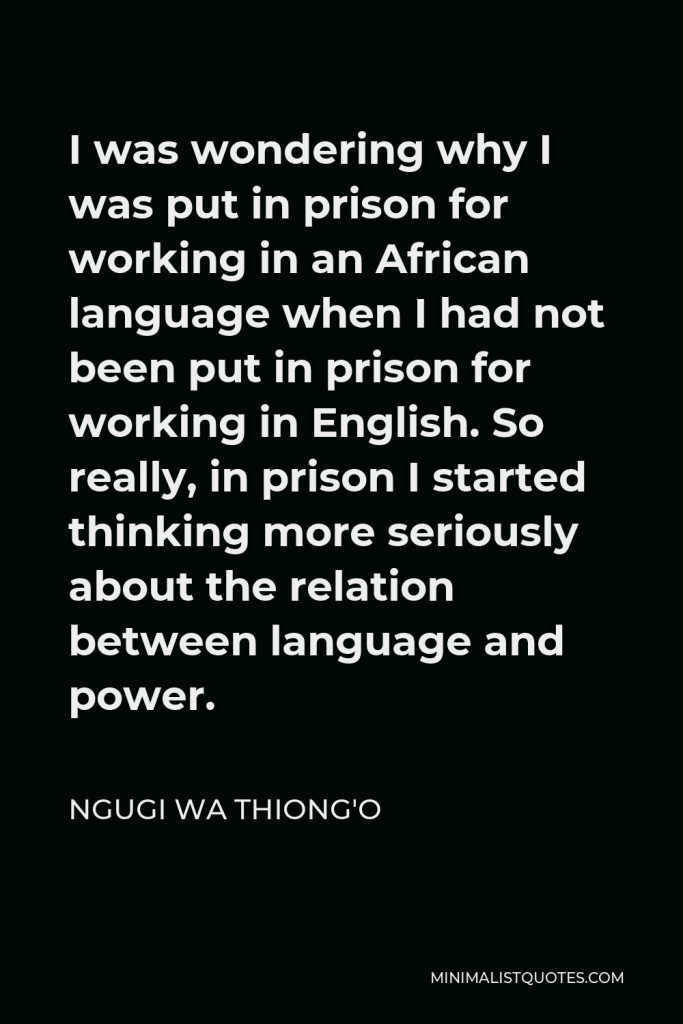

I was wondering why I was put in prison for working in an African language when I had not been put in prison for working in English. So really, in prison I started thinking more seriously about the relation between language and power.
NGUGI WA THIONG'O -





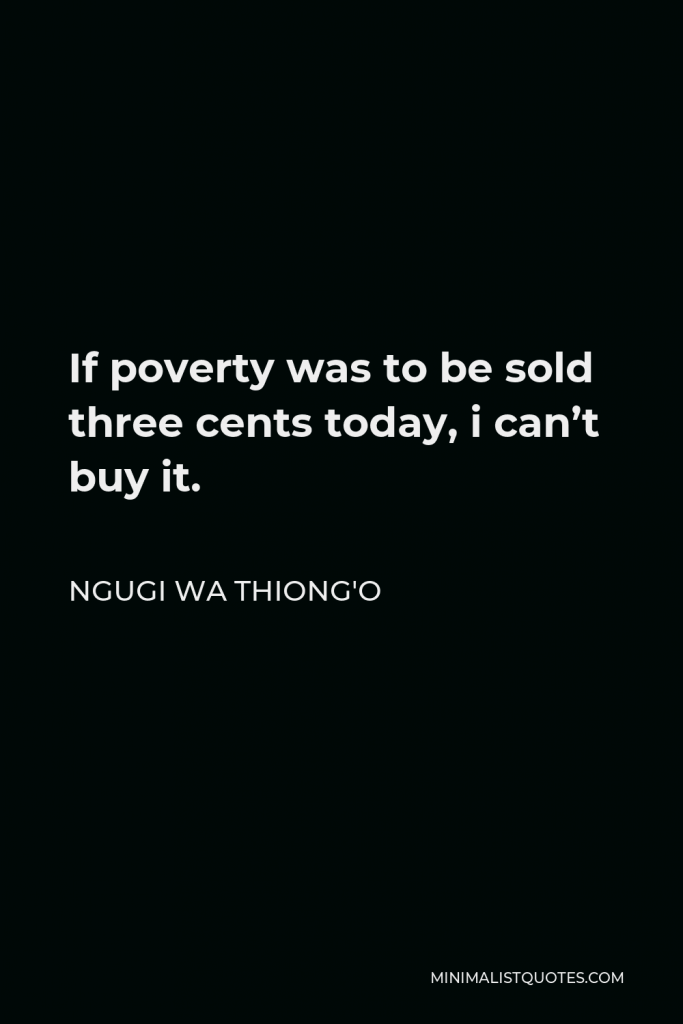

If poverty was to be sold three cents today, i can’t buy it.
NGUGI WA THIONG'O -





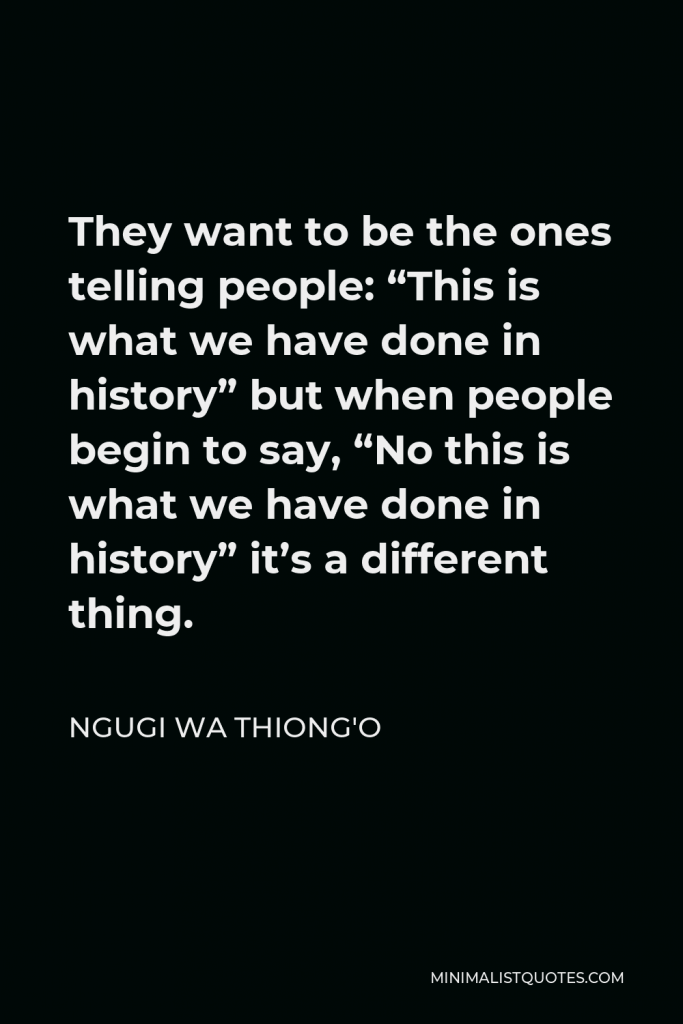

They want to be the ones telling people: “This is what we have done in history” but when people begin to say, “No this is what we have done in history” it’s a different thing.
NGUGI WA THIONG'O -





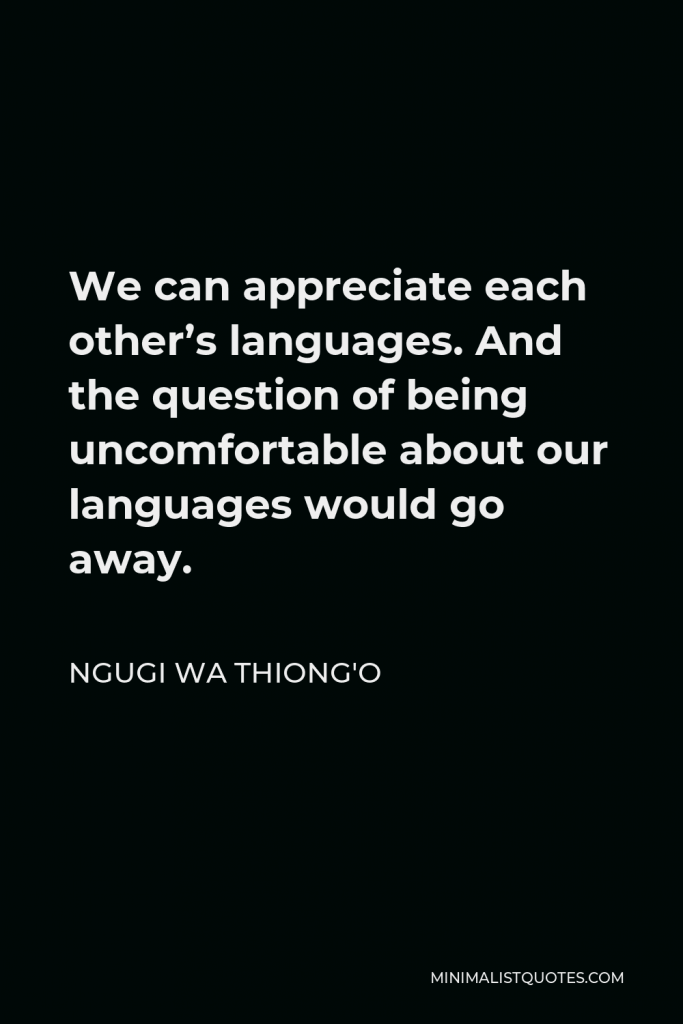

We can appreciate each other’s languages. And the question of being uncomfortable about our languages would go away.
NGUGI WA THIONG'O -





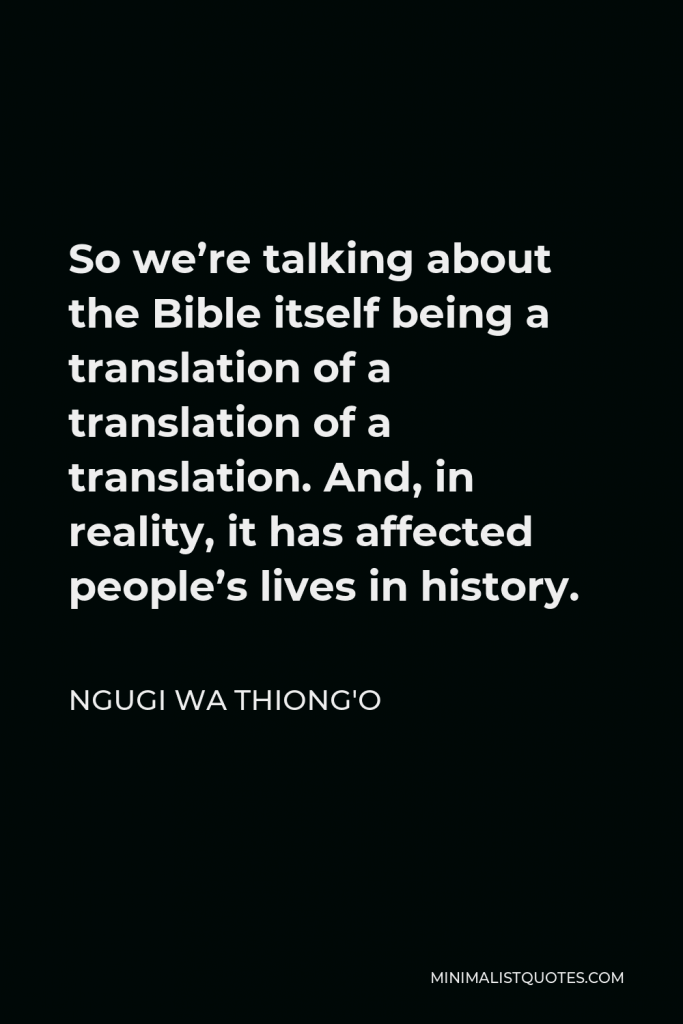

So we’re talking about the Bible itself being a translation of a translation of a translation. And, in reality, it has affected people’s lives in history.
NGUGI WA THIONG'O
